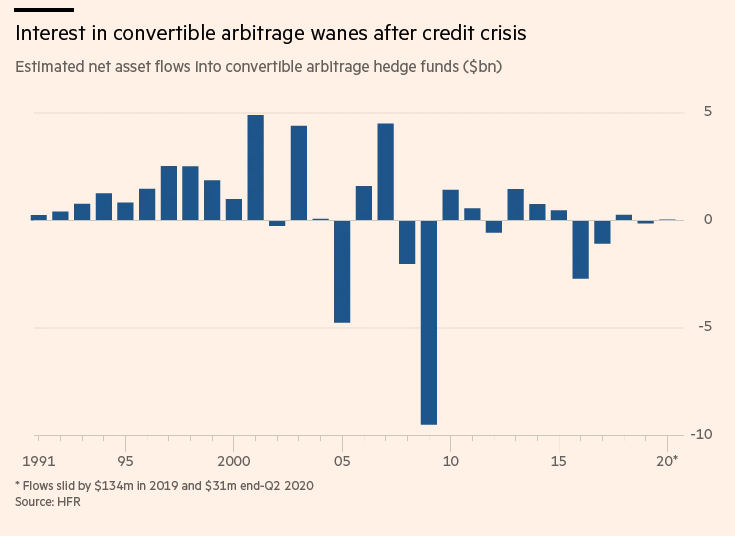With market volatility back on the scene, a tried-and-tested hedge fund strategy is making a return, according to a recent Financial Times article. The use of convertible arbitrage is benefiting hedge funds, which could translate to gains for the Global X Guru Index ETF (GURU).
“Convertible bonds allow their owners to convert their holdings into a pre-determined number of the company’s shares — effectively a call option on, or the right to buy, the shares,” the FT article explained. “While some traditional investors just buy and hold the bonds, hedge funds buy the bonds and then hedge their position by shorting the shares, or betting they will go down. They aim to profit from the stock’s volatility, which increases the value of the option embedded in the bond.”
“Convertible arbitrage has been fantastic,” said Kevin Russell, chief investment officer at UBS’s hedge fund unit O’Connor.

As for GURU, it seeks investment results that correspond generally to the price and yield performance of the Solactive Guru Index. The underlying index is comprised of the top U.S. listed equity positions reported on Form 13F by a select group of entities characterized as hedge funds.
GURU gives investors:
- access the high conviction investments of some of the largest, most sophisticated hedge funds in the world.
- the benefits of hedge funds’ top tier research and knowledge to outperform US equity benchmarks such as the S&P 500.
- an expense ratio of 0.75%, potentially allowing for greater cost efficiency, while providing access to hedge fund ideas.
Another similar fund to look at is the Goldman Sachs Hedge Industry VIP ETF (GVIP). The fund seeks to provide investment results that closely correspond, before fees and expenses, to the performance of the Goldman Sachs Hedge Fund VIP IndexTM.
The fund seeks to achieve its investment objective by investing at least 80% of its assets in securities included in its underlying index, in depositary receipts representing securities included in its underlying index, and in underlying stocks in respect of depositary receipts included in its underlying index. The index is designed to deliver exposure to equity securities whose performance is expected to influence the long portfolios of hedge funds.
One more fund to consider is the IQ Hedge Multi-Strategy Tracker ETF (NYSEArca: QAI), which seeks investment results that correspond generally to the price and yield performance of its underlying index, the IQ Hedge Multi-Strategy Index. The fund is a “fund of funds” which means it invests, under normal circumstances, at least 80 percent of its net assets, plus the amount of any borrowings for investment purposes, in the investments included in its underlying index, which includes underlying funds.
For more market trends, visit ETF Trends.

